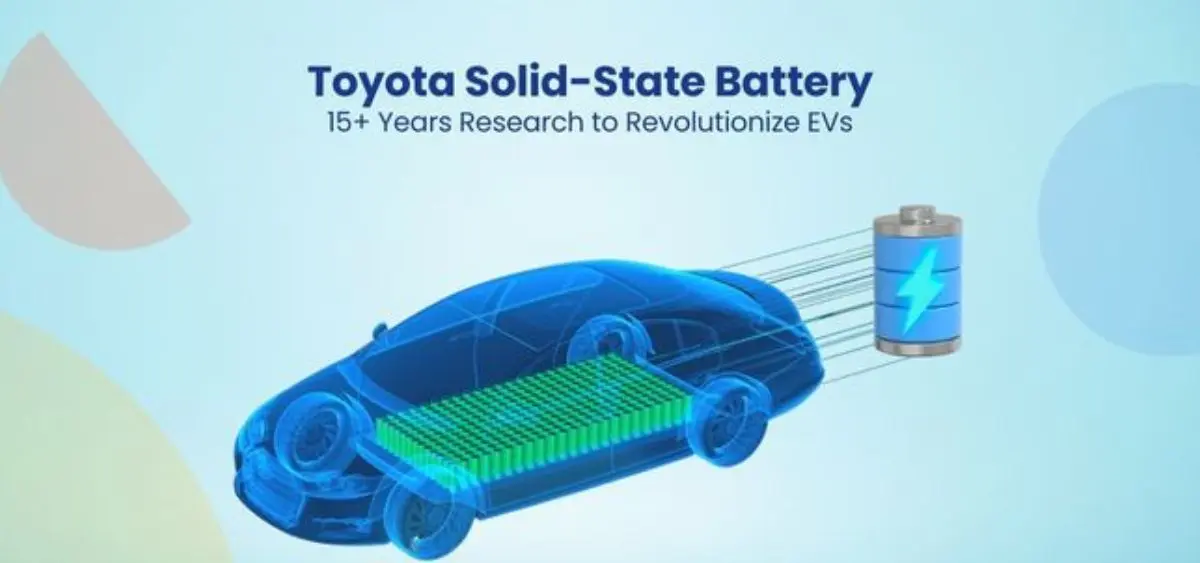Get ready for a revolution in electric mobility! Toyota Releases World’s First All-Solid-State Batteries for EVs, a breakthrough that could change how we drive forever. Promising ultra-fast charging, longer range, and unmatched safety, this innovation marks a bold leap into the future of sustainable transportation. With plans to debut its first EV powered by this technology by 2027–2028, Toyota is setting the stage for a new era in battery performance and efficiency. Could this be the turning point that finally makes EVs the ultimate driving choice? Let’s dive in!
The Partnership Driving the Revolution
To bring this ambitious vision to life, Toyota has entered into a strategic partnership with Sumitomo Metal Mining Co., a company known for its expertise in developing advanced cathode materials. Both companies have been collaborating since 2021, with a focus on overcoming the challenges of mass-producing solid-state batteries.
Using Sumitomo’s proprietary powder synthesis technology, Toyota has successfully developed a high-strength cathode material that enhances the durability and performance of the solid-state cells. This breakthrough marks a major step toward the commercialization of next-generation EV batteries.
How Solid-State Batteries Differ from Conventional Ones?
Unlike traditional lithium-ion batteries, which use a liquid electrolyte, solid-state batteries rely on solid electrolytes combined with a cathode and an anode. This design offers several advantages:
- Faster charging — dramatically reducing charging time.
- Increased energy density — enabling longer driving ranges.
- Improved safety — lower risk of overheating or fire.
- Compact design — allowing more flexibility in vehicle architecture.
According to Toyota, this technology “unlocks the potential for reduced size, increased power output, and extended lifespan,” which could revolutionize the global EV industry.
Japan’s Strategic Push for Battery Independence 🇯🇵
Toyota’s innovation aligns with Japan’s national strategy to strengthen its domestic EV battery supply chain and reduce reliance on China and South Korea. The Japanese government has certified Toyota’s new battery production under METI (Ministry of Economy, Trade and Industry) guidelines.
Additionally, Idemitsu Kosan, another major Japanese energy company, plans to build a large-scale facility for producing lithium sulfide, a crucial raw material for solid-state batteries. Once operational, the plant will have the capacity to produce 1,000 tons annually and begin mass production by 2027, further accelerating Toyota’s roadmap.
Collectively, Japanese companies — including Toyota, Idemitsu, and Sumitomo — are investing nearly $7 billion (1 trillion yen) to establish a self-reliant EV battery ecosystem.
The Global Race Toward Solid-State Technology
Toyota isn’t alone in this race. Global automakers like Mercedes-Benz, BMW, Volkswagen, Honda, and battery giants CATL and BYD are all pursuing solid-state technology.
In fact, Mercedes-Benz has already tested an EQS prototype equipped with solid-state batteries that achieved an impressive 1,205 km range. The company plans to move toward mass production by the end of the decade, calling it a “turning point” in EV history.
Note:-
Perfect for EV owners and future EV buyers. Stay ahead with insider tips, latest updates, and practical guides—all in one place!
Want the Ultimate EV Hacks? Don’t miss out—Subscribe on YouTube, Follow our Blog, and Download the Pick My EV App now!
Click, follow, and never miss an EV update again!
Related Articles:-

